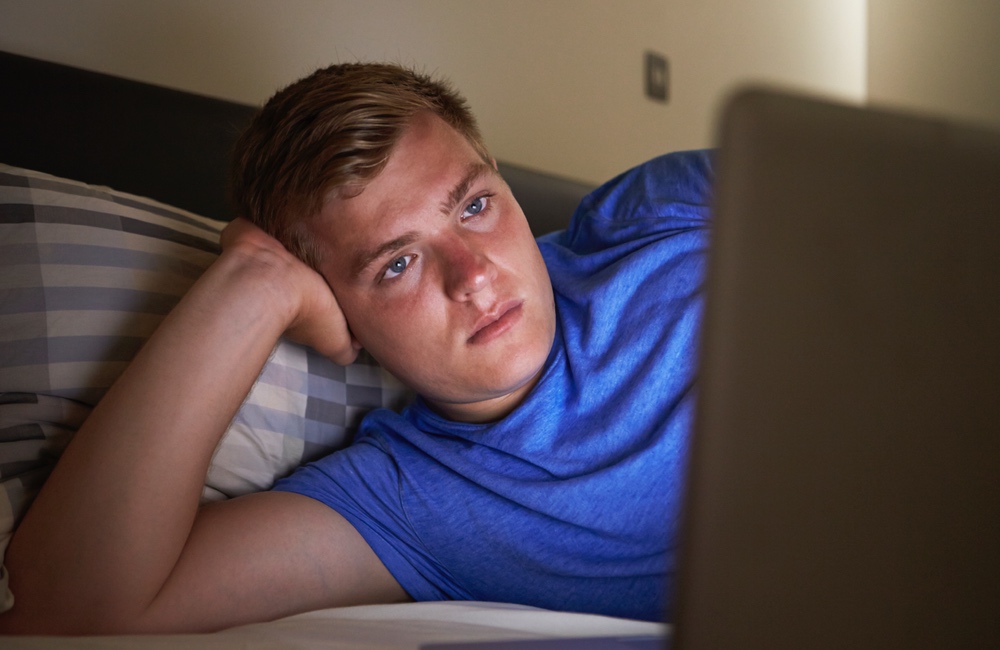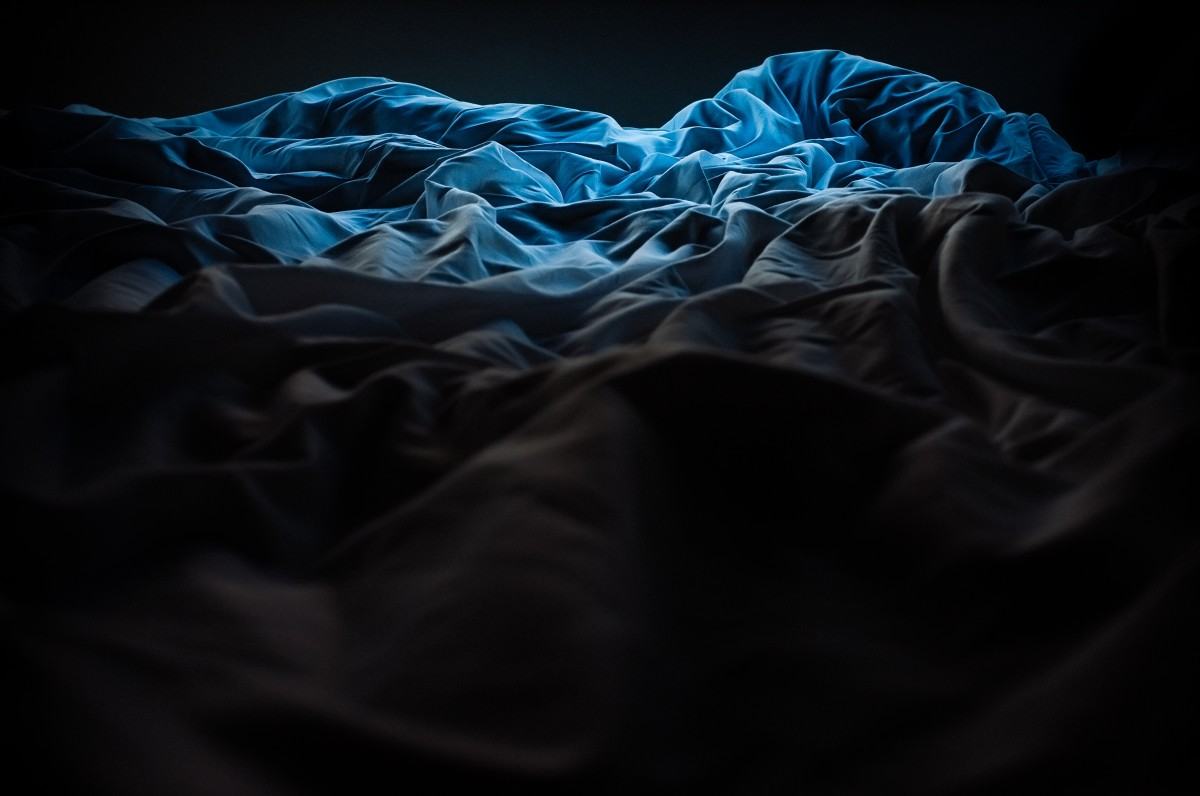
There was a clear association between sleep deprivation and access to screens and social media: sleep deprived teens were at more risk of nocturnal disruption with a higher prevalence of computers (67 % vs. A negative effect on mood was evident: in sleep, deprived teenagers irritability (5.28☓.12 vs. Sleep deprivation had an effect on daytime performance: teenagers deprived of sleep were more likely to report a need to fight sleepiness, (5.93☓.24 vs. 9 % taking over an hour to fall asleep (P<0.0001) and difficulties getting up in the morning were more common (7.05☓.27 vs. In sleep deprived teens compared to teens sleeping, the recommended ≥9hours, difficulties falling asleep were reported with 33 % vs. Sleep deprivation during the week (6hours or less) was less common in 6th graders 5 % vs. No significant difference was found between girls and boys for sleep duration, sleep quality, performance during the day or mood. For students in 6th grade compared to 9th grade in sleep duration in SP decreased (8:55☙0 vs. Sleep time was clearly longer in PR (10h12☑26 P<0.0001) compared to PS. Bedtimes were later in PR compared with PS (22h06☑32 vs. During the night, some teens woke up to continue screen-based activities: 6.1 % in order to play online video games, 15.3 % to send texts and 11 % to use social media. texts, social media, video games or television).

After bedtime, 51.7 % regularly used electronic devices of which 25.6 % had a screen-based activity (e.g. After dinner, 52.6 % spent more than an hour and 14.7 % spent more than 2hours in front of a screen. Internet access was almost universal (98.3 %), 85.2 % had cell phones and 42.7 % had a personal computer in their bedroom.

Four schools took part with 408/786 girls (64.2 %) and a mean age of 12.4☑.24. Students were divided into those with clear sleep deprivation (sleep time<6hours in SP) and those whose sleep time was in line with the National Sleep Foundations recommended sleep needs for teenagers (9hours or more).Ī total of 786 questionnaires were completed and 776 were exploitable. Outcome measures were sleep and wake times with estimated sleep duration in school (SP) and rest periods (RP), use of screens (computers, tablets, smartphones and video game consoles), the use of social media and impact on visual analogue scales of sleep quality, mood and daytime functioning. Our study aimed to evaluate the effects of social media on teenagers' sleep and the impact of sleep deprivation.Īs part of a sleep education program conducted in middle schools, teenagers from 6th to 9th grade were invited to complete an online questionnaire on sleep habits with teacher supervision and after parental consent. The links between the use of social media and sleep patterns have not been fully explored. Use of screens has been shown to delay sleep onset and melatonin secretion and stimulation of wake systems by interaction with social media may exacerbate these effects.

Changes have been associated with the use of screens, cell phones, Internet and social media. Sleep deprivation is linked to physical problems such as obesity but also to change in performance at school and mood disorders. Modification of sleep behaviors in teenagers has been observed over the past 30years with a reduction in overall sleep time and an increasing number of teenagers suffering from sleep deprivation.


 0 kommentar(er)
0 kommentar(er)
